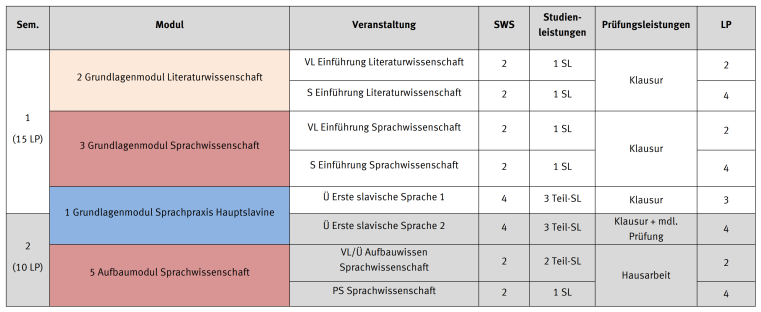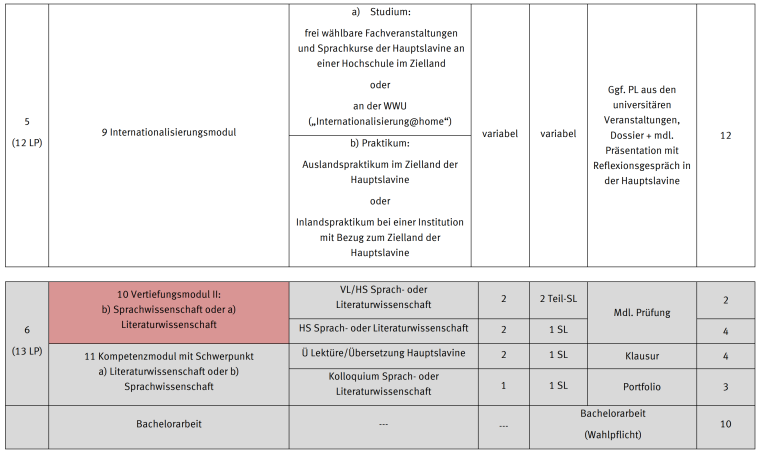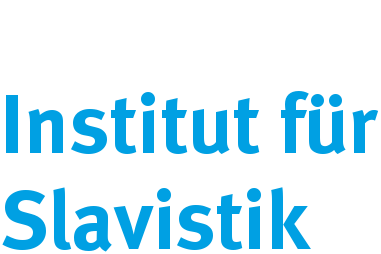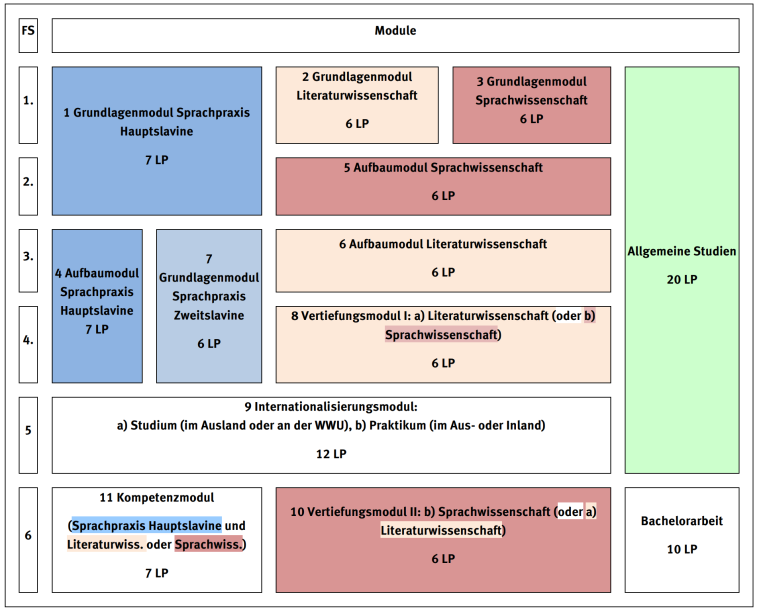What does studying Slavic studies offer?
In the Western European imagination, even after joining the European Union, the countries of Central and Eastern Europe were still considered marginal, economically backward, and culturally uninteresting. Since the 2010s, this distorted image has changed rapidly, and the early prejudices and stereotypes have long been forgotten. Economically and culturally, these countries have flourished, with millions of tourists flocking to the streets of Prague, Warsaw, and Kyiv every year. At the latest with the barbaric war unleashed by the Russian Federation against Ukraine, people are looking differently at the countries of Central and Eastern Europe, which are playing a leading role in showing solidarity with Ukraine in its fight for independence and freedom and thus for fundamental democratic values. Slavic studies are therefore more relevant than ever, and Slavic scholars are in high demand as experts on their regions. Gone are the days when the focus was primarily on Russia. Studying Slavic studies means engaging with the diverse and colorful languages, literatures, and cultures of Central and Eastern Europe.
Slavic Studies in Münster focuses primarily on three countries: Poland, the Czech Republic, and the Russian Federation. The program is divided into two central areas, literary studies and linguistics, which are given equal weight in the curriculum.
Language courses run parallel to the specialized studies (see FAQ). Here you can choose between Polish, Russian, and Czech as your main language and later learn the basics of another Slavic language. Ukrainian is also offered at the institute. Each of these languages can be learned from scratch — the Slavic Studies program does not require any prior knowledge, but it does require interest and enthusiasm. In the general studies program, you can already start to look beyond your own field and prepare for your future career. A highlight of the program is the internationalization module: depending on your inclinations and interests, you can either study at a university abroad or complete an internship at a cultural institution or company in Central Europe.
Zwei-Fach-Bachelor Slavistik
Idealtypischer Studienverlauf des Teilstudiengangs Slavistik

© Institut für Slavistik 
© Institut für Slavistik 
© Institut für Slavistik
Frequently Asked Questions
Enrollment for the program
1. What high school grades are required for admission?
- The program is open to all applicants.
2. What high school subjects are required for admission?
- The subject can be studied with any combination of subjects.
3. When does the program start?
- The program always starts in the winter semester.
4. What is the deadline for applying for a university place? When will I receive my admission notification? How do I apply for a university place? What documents do I need to submit?
- For these and all other questions regarding application and enrollment, please consult the Central Student Advisory Service.
Structure of the program
5. Is Slavic Studies a double major bachelor's degree?
- Yes, Slavic Studies can be studied as a major together with another subject.
6. Where can I find a detailed description of the modules?
- A general overview of the modules can be found on this page. A detailed breakdown can be found in the examination regulations.
7. Which languages can I learn during my studies? Which countries and their languages, literatures, and cultures are given the most emphasis during the program?
- You can learn Polish, Czech, Ukrainian, and Russian. No prior knowledge of these languages is required. Polish, Czech, and Russian are available as major languages. In the bachelor's program, you will also learn the basics of a second Slavic language. The institute also offers an Ukrainian course. Your studies will focus on the countries where the selected languages are spoken, including their languages, literature, and cultures.
8. Are language skills required before starting the program?
- No prior knowledge is necessary. Each language can be learned from scratch.
9. Does the program focus on literary studies or linguistics?
- Both areas are studied to the same extent until the fifth semester. Only in the sixth and final semester of the bachelor's program do you choose a focus in the final module and can then write your bachelor's thesis in that area.
10. What opportunities are there for a semester abroad or an internship abroad?
- A stay abroad is an integral part of the program and is ideally completed in the fifth semester. You can either study at a university in Central Europe or do an internship. In justified exceptional cases, this part of the program can also be completed locally (so-called Internationalization@home with language and subject studies at the University of Münster or an internship at an institution in Central/Eastern Europe).
11. In which building do the events take place?
- Most events take place at Bispinghof.
12. Who can I contact if I have further questions?
- If you have questions specifically related to Slavic studies, please contact Ms. Focke (nele.focke@uni-muenster.de) or Mr. Peschanskyi (valentin.peschanskyi@uni-muenster.de). For general questions, please contact the Central Student Advisory Service.
13. What does Münster have to offer as a city and place to study?
- In less than ten minutes, two short videos will give you a first impression of city and campus life in Münster. If you would like more information, you can also visit the city and university websites. However, the best thing to do would be to spend a weekend in beautiful Münster to get a feel for your future place of study.
Course guidance and counselling service
For all questions regarding the study of Slavic studies, please contact Ms. Focke (nele.focke@uni-muenster.de) or Mr. Peschanskyi (valentin.peschanskyi@uni-muenster.de). For general questions, please contact the Zentrale Studienberatung.


